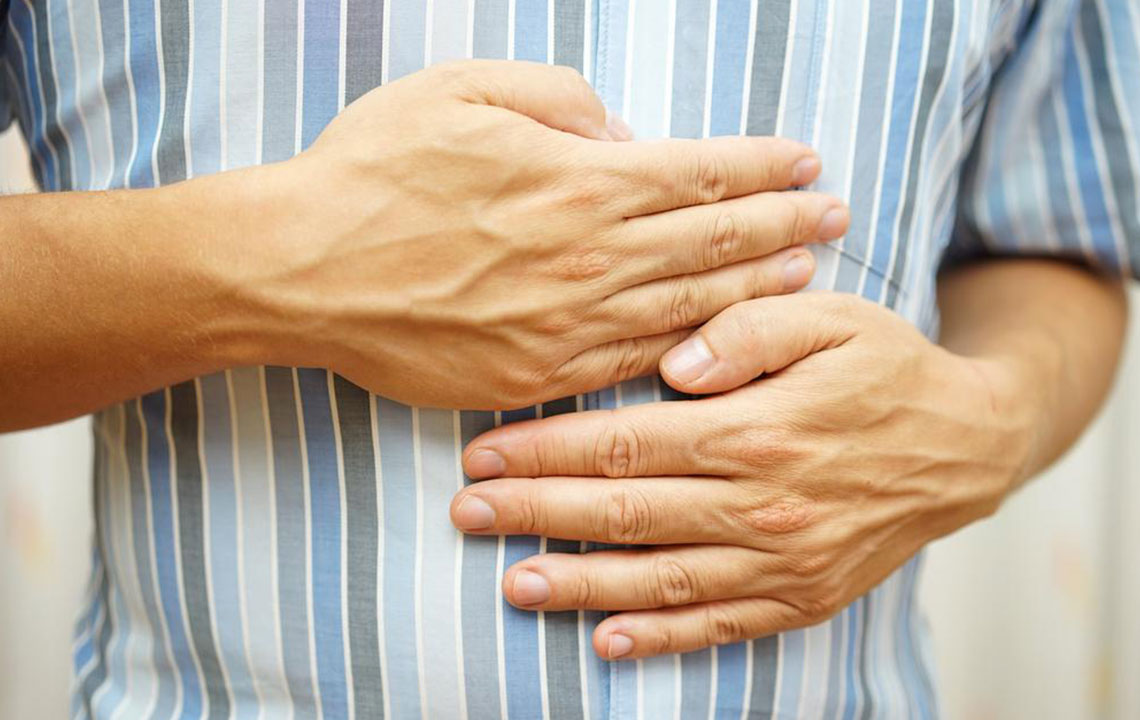Crohn’s Disease – Symptoms, Diagnosis, and Treatment
Crohn’s disease is an inflammatory bowel disease. It is a lifelong disease in which the parts of digestive system get swollen and get affected by sores and ulcers. Though Crohn’s disease can develop in any part of the digestive system, they are mainly found in the last part of the small intestine and first part of small intestine.
Doctors are still not sure as to what causes Crohn’s disease. It is assumed that it could be caused due to body’s immune system has an abnormal response to normal bacteria in the intestine.

Crohn’s disease in some cases might be hereditary. The chances of an individual getting Crohn’s disease might be higher if a close family member has it.
Some of the general Crohn disease symptoms include belly pain and diarrhea. People suffering from Crohn’s disease might experience diarrhea 10 to 20 times a day (sometimes with blood). Less common Crohn disease symptoms include mouth sores, anal tears (fissures), fistulas, and bowel blockage. Environmental factor also plays a role in Crohn disease symptoms. It is observed that people who smoke also stand a higher probability to get contacted with Crohn’s disease.
The main Crohn disease symptoms include:
- Belly pain
Belly pain while suffering from Crohn’s disease might be described as cramping and intermittent, and it is sore when touched. As Crohn disease symptoms get worse, the belly pain may turn to a dull, constant pain. - Diarrhea
As mentioned above, people suffering from Crohn disease symptoms might suffer from severe diarrhea, up to 10 or 20 times a day. Although not always, Crohn’s disease might cause blood in stools. - Fever
A person suffering from Crohn’s disease might also develop a high fever. High fever could mean that the person might have an infection, such as an abscess. - Loss of appetite
A person suffering from Crohn disease symptoms such as diarrhea might experience loss of appetite, which can lead to unnatural weight loss. - Anemia
People suffering from Crohn disease symptoms might also experience a drop in the RBC count in their blood. This is because of low iron levels caused by blood stools or the intestinal inflammation itself. - Anal fissures
A person suffering from Crohn’s disease might also experience small tears in the anus, called as anal fissures. Although, these anal fissures might not be persistent. A person might also experience Crohn disease symptoms apart from the digestive tract. This may include joint pain, eye problems, skin rashes or liver disease.
Diagnosis
- People suffering from Crohn disease undergo a physical exam, which includes Barium X-rays of the colon or intestine and other lab tests.
- In tests like Colonoscopy and flexible sigmoidoscopy, the doctor uses a thin, lighted tube to look for infections inside the colon.
- The doctors might take the biopsy, a sample of the tissue of the affected area to find out if the person is suffering from Crohn’s disease.
- Stool analysis is also done in which the blood is traced in the stool which might prove that the person is suffering from Crohn disease symptoms.
- One or more imaging tests including CT scan or MRI might also be done to diagnose Crohn disease symptoms.
- The main target of a doctor to treat Crohn disease symptoms is to stop the inflammation in the intestine and use medicines that would prevent flare-ups.
- People having severe and long-lasting Crohn’s disease symptoms might require stronger medications or even surgery.
- The type of treatment a person needs depends on the type of symptoms the person might have.
Managing Crohn’s disease symptoms
- Mild symptoms might respond to antidiarrheal medicines. These medicines slows or stops the painful spasms in the intestines
- For moderate Crohn’s disease symptoms, the doctor might prescribe antibiotics like aminosalicylates.
- For severe symptoms, corticosteroids, biologics or immunomodulator medicines might be used. When the symptoms start to recede, the doctor will plan a treatment to keep the person free from the symptoms of Crohn’s disease.
- In severe conditions, the person might need to be treated with supplemental nutrition, through a tube placed in the nose and down to the stomach. To keep the bowel a rest, the person will be fed liquid nutrients intravenously.
- Crohn’s disease makes it hard for the body to absorb nutrients from the food. A meal-plan that mainly focusses on high-protein, high-calorie foods can help the patient get the nutrients they need.
- Having Crohn’s disease can be stressful as the disease affects the part of a person’s life. Many people with inflammatory bowel diseases look for alternative treatments in order to improve their well-being.
- These treatments do not help in getting a person free from the symptoms of Crohn’s disease but they do help to cope with it. These include massage, supplements such as Vitamin D and B12 and herbs like ginseng.


